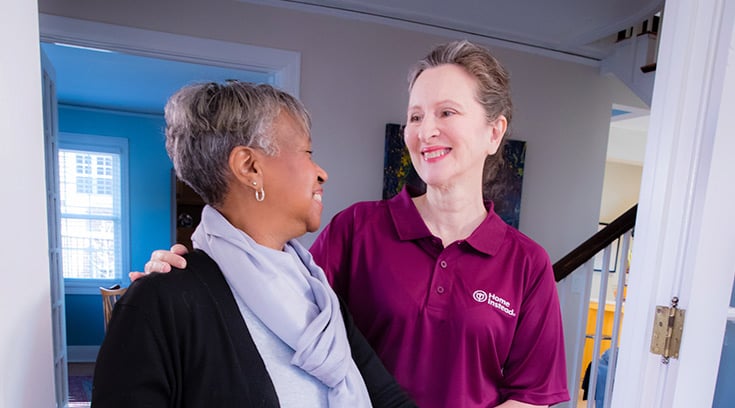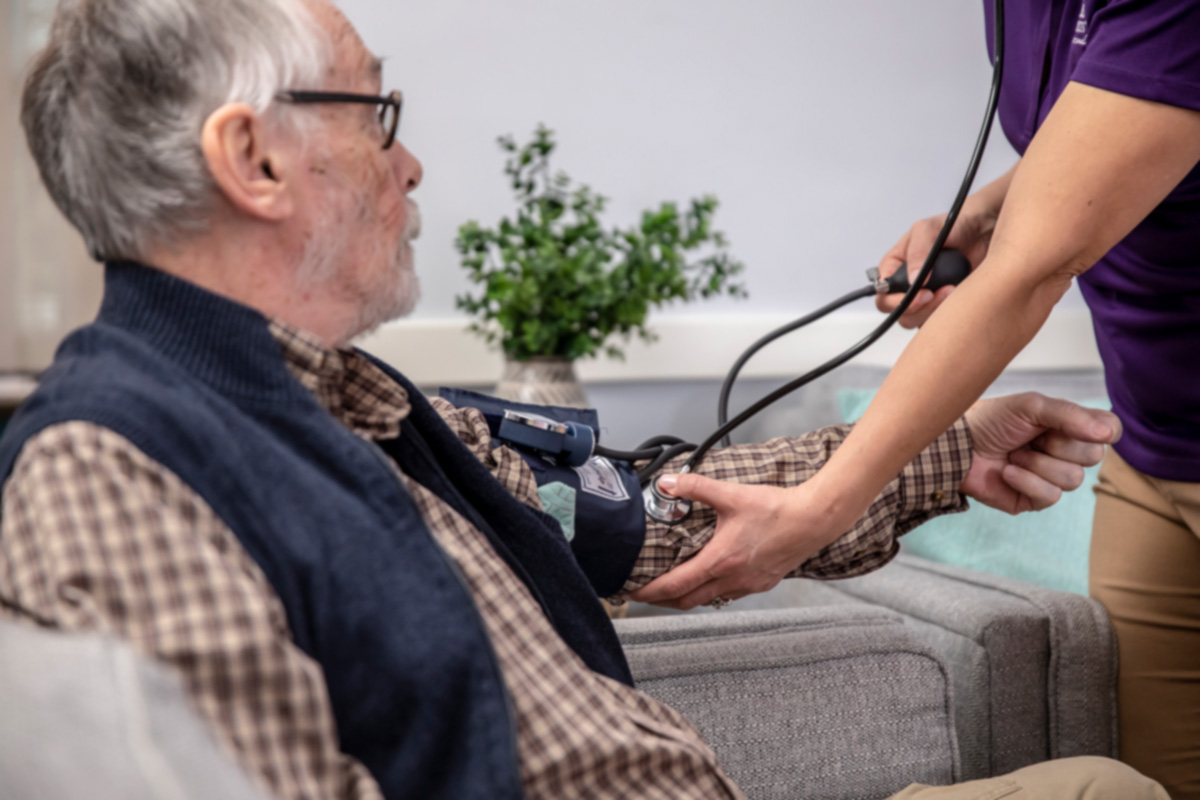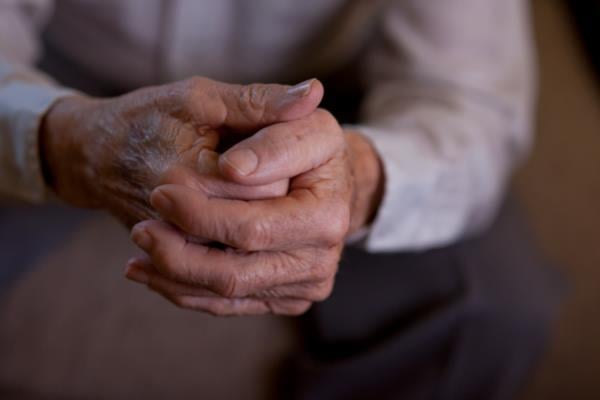The mid-morning telephone conversation between Madeleine and her 88-year-old dad always seemed to begin the same way. “I’m so dizzy I’m afraid I’ll fall when I stand up from the chair,” father complained to daughter.
After a visit to the doctor, Madeleine’s father learned that fluctuations in his blood pressure are making him dizzy in the mornings soon after he takes his medication. To help, the doctor adjusted his prescription in an effort to keep his blood pressure within his personal green zone.
Despite our best efforts, controlling blood pressure as we get older can be a challenge for many. Furthermore, these issues could put family caregivers at a loss for how to help their senior parents and loved ones.
Blood pressure issues can be complex since causes and treatments may vary from one individual to the next. What is blood pressure? What’s normal and what isn’t?
What Is Blood Pressure?
According to the National Institute on Aging (NIA), blood pressure is the force of blood pushing against the walls of arteries. When the doctor measures blood pressure, the results are given in two numbers. The first number, called systolic blood pressure, is the pressure caused by your heart contracting and pushing out blood. The second number, called diastolic blood pressure, is the pressure when your heart relaxes and fills with blood. Your blood pressure reading is usually given as the systolic blood pressure number over the diastolic blood pressure number. Normal blood pressure for adults is defined as a systolic pressure of less than 120 and a diastolic pressure of less than 80, or 120/80.
Is Dad’s Blood Pressure Too High?
Updated guidelines from the American Heart Association and the American College of Cardiology have changed the definition of high blood pressure or hypertension for most people, the NIA reports. High blood pressure is now generally defined as 130 or higher for the first number, or 80 or higher for the second number (previously it was 140/90). However, there are important considerations for older adults in deciding whether to start treatment for high blood pressure, including other health conditions and overall fitness. Generally, if Dad’s blood pressure is above 130/80, his doctor will likely evaluate his health to determine what treatment is needed to balance risks and benefits in his particular situation.
Everyone, not just seniors, should monitor their blood pressure. The stress of family caregiving, for example, could be taking a toll on your own health, so be sure to check yours as well as to encourage Dad to stay on top of his with regular doctor visits. High blood pressure may be referred to as the “silent killer” because oftentimes there are no symptoms, the NIA notes. If there's an indication Dad’s blood pressure is high at two or more checkups, the doctor may advise your father to check his blood pressure at home at different times of the day, or ask you to assist him. If his pressure stays high, even when he is relaxed, the doctor may suggest exercise, changes in diet, and, most likely, medications, the NIA notes.
What if Blood Pressure Is Low?
If your father is complaining of being dizzy, his blood pressure may be dropping too low. Generally, blood pressure readings lower than 90/60 could be an indication of low blood pressure or hypotension. He may feel lightheaded, weak, dizzy or even faint, nauseous and have problems with concentration. Low blood pressure can be caused by not drinking enough liquids (dehydration), blood loss, some medical conditions or too much medication, the NIA explains. Low blood pressure may be normal for many people, particularly those with a strong heart and well-developed circulatory system. If no symptoms are present, low blood pressure is not normally a problem. However, if certain symptoms persist, your father’s blood pressure may be too low.
Dad’s First Number (Systolic) is High, but the Second Number (Diastolic) is in the Normal Range
For older people, often the first number (systolic) is 130 or higher, but the second number (diastolic) is less than 80. This problem is called isolated systolic hypertension, which is due to age-related stiffening of the major arteries. It is the most common form of high blood pressure in older people and can lead to serious health problems (stroke, heart disease, eye problems, and kidney failure) in addition to shortness of breath during light physical activity, lightheadedness upon standing too fast, and falls. Isolated systolic hypertension is treated in the same way as regular high blood pressure (130 or higher for the first number, or 80 or higher for the second number) but may require more than one type of blood pressure medication.
What Can You Do to Help Control Blood Pressure?
- High blood pressure is very common in older people. As we age, our vascular system changes. Arteries get stiffer, so blood pressure goes up, the NIA notes. This is true even for people who have heart-healthy habits. The good news is that blood pressure can be controlled in most people. Here are ways you can help your father, according to the NIA:
- Encourage your dad to eat a healthy diet and keep a healthy weight. Being overweight adds to the risk of high blood pressure. Recommend your father ask his doctor if he needs to lose weight. A diet rich in fruits, vegetables, whole grains, and low-fat dairy products may help to lower blood pressure. As we get older, the body and blood pressure become more sensitive to salt (sodium), so your father may need to watch how much salt is in his diet. Most of the salt comes from processed foods (for example, soup and baked goods). A low-salt diet, such as the DASH diet , might help lower blood pressure. Remind your father to watch his alcohol intake as well. Men should not have more than two drinks a day and women no more than one a day to lower their risk of high blood pressure.
- Encourage Dad to exercise, or at least keep moving if he can, every day. Moderate exercise can lower the risk of high blood pressure. Be sure Dad checks with his doctor before starting an exercise plan.
- Remind your father of the importance of a good night's sleep. Let Dad’s doctor know if your father snores or sounds like he stops breathing for moments when he sleeps. This may be a sign of a problem called sleep apnea. Treating sleep apnea and getting a good night's sleep can help to lower blood pressure.
- Manage stress. Relaxing and coping with problems could help lower high blood pressure.
- Report all medications and supplements to the doctor. Be sure your dad tells his doctor about all the drugs he takes. Don't forget to mention over-the-counter drugs, vitamins, and dietary supplements. They may affect blood pressure. They also can change how well blood pressure medicine works.
- Monitor blood pressure closely. If the doctor asks your father to take his blood pressure at home, keep in mind: There are many home blood pressure monitors for sale. Ask his doctor, nurse, or pharmacist which monitor you need and how to use it. Have his monitor checked at the doctor's office to make sure it works correctly.
- Keep a list of your dad’s blood pressure numbers. This list should include what time he measured his blood pressure, and when he took his blood pressure medication (if he takes it). Share this information with his doctor, physician's assistant or nurse.
Lifestyle changes can lower blood pressure to a safe level, but many times people will need to be on medication as they grow older. Medicine can control blood pressure, but it can't cure it, the NIA notes. Those on blood pressure medication likely will need to take that medicine for the rest of their lives. But being proactive can go a long way toward helping your dad.
If your father needs help maintaining healthy habits at home, consider a Home Instead® Care Professional. A Care Pro can assist in preparing healthy meals, remind him to take his meds on schedule, and help him stay active.
For more information about blood pressure, visit the National Institute on Aging.
This content is not intended to be a substitute for professional medical advice, diagnosis, or treatment. Always seek the advice of your physician or another qualified health provider with any questions you may have regarding a medical condition.
In-Home Care for Chronic Conditions




